
views
Race Against Time: Black Market Traders vs. Park Rangers
Unveiling the Veil: James McAllen's Secret Stash of Red Gold
James McAllen held a secret known to only a select few. Nestled within the depths of the national park was a clandestine location where the elusive red ginseng thrived, known to yield an astonishing $480,000 per plant in the market.

But don't be deceived by his unassuming appearance. James wasn't just a quirky herbalist; he was a key player in a high-stakes game. His family had safeguarded this treasure for over a century, and only the eldest son and daughter were entrusted with the location's knowledge – a privilege earned through unwavering trust and loyalty.
An Epoch of Secrets
For generations, spanning back to his great-grandparents, grandparents, father, and now James himself, they had unearthed more than 500 of these coveted plants.

Almost 50 were harvested in their debut year alone. Yet, such prolific numbers would draw attention. Thus, when James joined the quest, they limited themselves to selling a maximum of three plants each year.
A Financial Fortitude
This limitation was strategic, yielding an annual income ranging from $800,000 to $1.5 million. Secrecy was paramount; authorities must remain oblivious.

It wasn't solely due to the protective status of the red ginseng but also because the McAllens had evaded taxes on their valuable finds and black market sales for over a century – a staggering fortune exceeding $40 million.
Rainfall Setbacks
James had initially planned his expedition a month earlier, well before the summer holidays. However, unrelenting weeks of rain thwarted his intentions. Now, amidst the peak vacation season, he faced dual risks.

Tourists might inadvertently stumble upon his operation, and even more perilous, the state's forest agency deployed a higher number of rangers during the summer months – James's sworn enemies.
The Perils of Patrolling Rangers
Avoiding inquisitive rangers was paramount. Yet, the absence of rangers wasn't an option either. In the past decade, campers and leisure hikers had sparked over 70 severe forest fires, some perilously close to the McAllens' ginseng sanctuary.

As responsible residents, they endorsed the influx of rangers, aiming to deter potential blazes.
The Weight of Delay
Ironically, while their neighbors had concluded their ginseng quests before summer's arrival, the McAllens faced a different fate. In the midst of an economic downturn that even tarnished their lucrative real estate endeavors, James had to postpone his harvest. It marked three consecutive years dominated by crises. The family construction company suffered first, blindsided when competitors abandoned projects due to the pandemic.

Overzealous in their endeavors, the McAllens eagerly picked up these abandoned tasks, their financial fortress crumbling. What was initially perceived as a crisis for others became their own struggle, affecting their prosperity.
As James ventured into the park, navigating not only the dense underbrush but also the looming threats of tourists and vigilant rangers, he carried not just the hopes of his family, but the weight of years of secrecy, ingenuity, and adversity.
Crises as Catalysts for Growth
Transforming Crises into Catalysts for Growth The McAllens' Resilient Journey Initially, their trajectory seemed like a narrative of triumph. Pre-pandemic, skilled labor was scarce and required substantial salaries, but the McAllens leveraged the situation to recruit talents from rival firms at more affordable rates. Their client base was abundant, and success appeared imminent.

Then, the unimaginable transpired: lockdowns and occupational bans. Revenues plummeted, while costs persisted.
A Startling Blow
In disbelief and paralysis, the McAllens witnessed their wealth erode. Spanning four generations, they had meticulously managed the earnings from their illicit ginseng market dealings.

Their holdings extended beyond the city's largest construction firm, encompassing the most expansive architectural studio, dominant real estate agency, and a staggering property portfolio across the entire county.
Legal Ventures
For 70 years, legal construction endeavors had outshone the pursuit and covert sale of ginseng. Still, the McAllens aimed to avoid overreliance on the real estate sector.

Consequently, James's grandparents diversified by establishing a chain of restaurants, adhering to the adage that people will always eat. Furthermore, they strategically utilized their roles as builders and realtors to secure prime locations for their eateries.
Advantages of Ownership
Owning the premises, thereby eliminating rent expenses, rendered restaurants remarkably resilient during crises. Over time, the McAllens cultivated not one but three restaurant chains burger joints, upscale Italian diners, and budget-friendly Asian street food stalls.
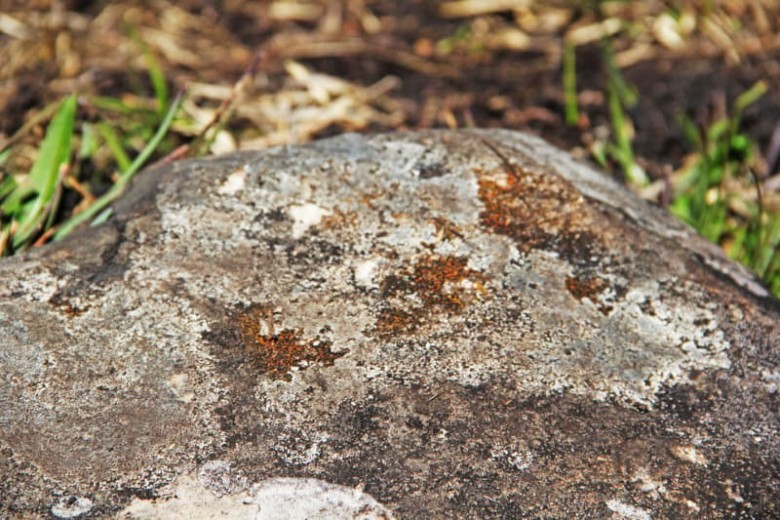
When discretionary spending waned, street food sales surged, compensating for the decline in fine dining.
Building, Dining, Traveling
Twenty years prior, James's father, George McAllen, ventured into the logistics domain. What originated as a modest trucking business with bus operations had evolved into a flourishing travel agency.

As James ascended to the board five years ago, the trucking segment was discontinued due to the unyielding price pressure. Instead, he expanded the luxury travel division exponentially.
Innate Winners
Up until 2019, the McAllens thrived. Whenever a sector faltered, the surplus revenue from other enterprises replenished the family coffers.
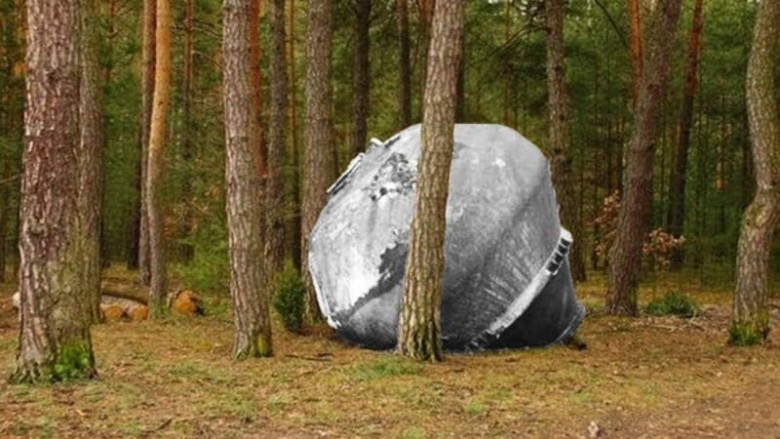
Several times, crises had propelled the McAllens to emerge richer than when they entered. Astute entrepreneurship seemed encoded in their DNA.
Wealth Begets Power
Accompanying their fortune was power. Exceptional success necessitated contributions to the city and county's prosperity.

The McAllens never needed to vie for positions; instead, mayors, county officials, and bank directors frequently solicited their involvement in roles, committees, and advisory capacities.
Concealing Self-Interests
The McAllens adeptly veiled their self-interests beneath the cloaks of environmental conservation and social equity. The prime example remains their family's ginseng secret. In the 1950s, a section of the nature park was earmarked for clearing to construct a highway.

However, a 12-year-old Tamara McAllen, supported by her grandmother Sophia McAllen, thwarted this endeavor.
A United Front
While Tamara's father purported to endorse the highway construction and even submitted a bid through his construction firm, Tamara and Sophia initiated an unprecedented protest campaign.

The family's active involvement lent authenticity to the cause. When Tamaras's father eventually admitted that the sandy soil would render highway construction exorbitantly complex and costly, the project crumbled.
Nature Conservation as Ginseng Protection
In subsequent years, the McAllens succeeded in obtaining protected status for the nature park, ensuring that construction would be off-limits for generations to come.

As wildfires escalated, the McAllen family rapidly bolstered firefighting funds, and the increased ranger patrols were, in essence, funded by the McAllens themselves.
Harvesting Remained Risky
Ginseng harvesting became feasible only during the brief period after Pentecost and before the summer holidays. This restriction posed no issue, as the McAllens had become independent of ginseng-related income, relying on their amassed wealth.
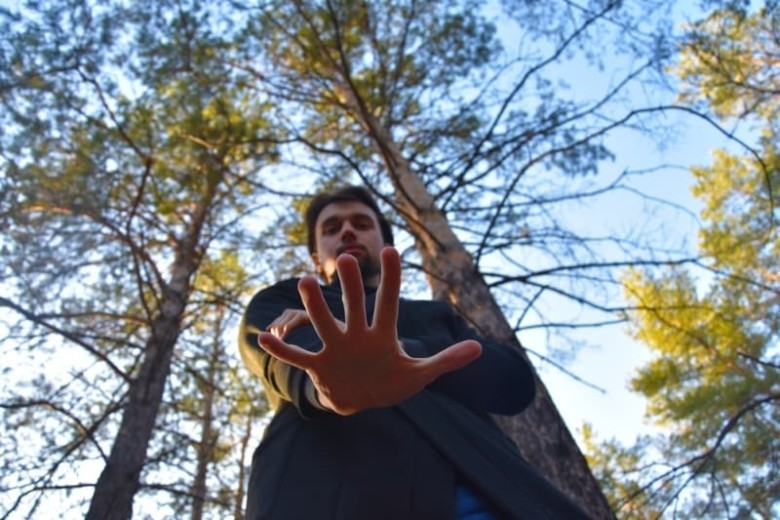
The family secret persisted primarily out of tradition and familial pride. Each member of the inner circle aimed to be the one who unearthed the most valuable ginseng.
The Corona Crisis
However, the upheaval caused by the pandemic disrupted the McAllens' lives. Externally, little changed. The McAllens had never flaunted Rolls Royces or Bentleys; each family member drove an old Ford F150 pickup truck – typically the vehicle purchased with their first earned money.

Thus, outsiders were unaware that, for the first time in 100 years, funds for a Rolls Royce were lacking.
Closures and Vacancies
The McAllens had indeed shuttered numerous restaurants, and the construction company had laid off most of its employees. Nearly $50 million evaporated within the first half of 2020.

The board had no choice but to intervene. The trifecta of industries – real estate, gastronomy, and travel – had all fallen victim to the icy grasp of the pandemic.
Setbacks Across Industries
Initially, mandated construction halts catalyzed the insolvency of some clients, leaving the McAllens grappling with unpaid invoices worth millions.
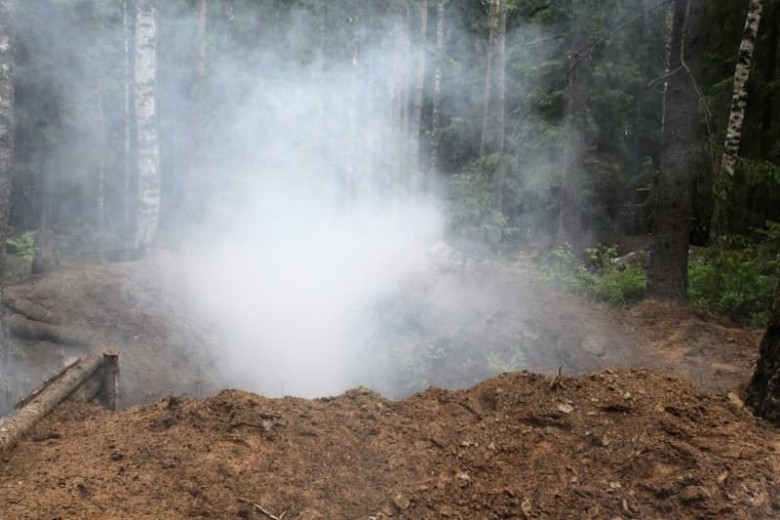
The McAllens employed their customary strategy during the first project – a substantial office building with retail spaces – driving the unfinished structure into foreclosure and subsequently acquiring it for a fraction of its actual value to operate it themselves.
Home Office Threatens Property Owners
However, by the end of 2020, the commercial real estate market had plummeted. Many businesses had already succumbed to bankruptcy, and those that persevered recognized the advantages of remote work.

Suddenly, employees occupied their personal spaces, utilizing their own utilities, water, and cleaning supplies. Company after company terminated their leases with the McAllens.
Additional Revenues Vanish
As their restaurants ceased paying rent for months and numerous long-standing tenants went bankrupt, the final blow was delivered by the terminations triggered by the shift to remote work, pushing the McAllens into dire straits.

What had been unthinkable for decades became reality monthly outlays for wages, interest, and repayments eclipsed their income. Even government assistance programs were of little avail.
Selling the Cash Cow
James lamented the sale of the trucking business every day. The buyer was currently raking in profits as pandemic-induced spikes in transportation costs reached astronomical heights.

However, dwelling on spilled milk was futile. While package trips had crumbled, his brainchild, the luxury travel division, managed to keep the travel agency afloat.
Imminent Loan Repayment
However, the construction company hung by a thread. A small loan of $500,000 would come due in three weeks. Three years prior, such a sum would have been paid without a second thought. But not today.

The only path to acquire the sum lay through ginseng. The incessant four weeks of rain had kept James on edge, like a cat on hot bricks. He had even ventured into the woods twice, disregarding the downpour.
No Control Over Nature
Yet, the forest remained unrelenting, and on both occasions, James had nearly met his end. He had been forced to abandon his search within a matter of hours on both attempts. Just three weeks before the loan's due date, he was more anxious than ever before.

To find red ginseng without being detected by tourists or rangers, James crouched in a hollow, clad in his old army uniform, holding his breath. Peering through binoculars, he scrutinized the surroundings.
Three Days of Reconnaissance
It had taken him three days to map out the ranger camp locations and patrol routes. Several of these routes led directly through the forest where red ginseng thrived. James had no choice but to shift his ginseng quest to the cover of night.

Once the rangers were sure that all tourists had departed the park and the risk of wildfires had diminished, their shifts concluded.
Night Veils All Cats Gray
Nighttime, however, rendered ginseng detection significantly more challenging. Whereas daytime permitted identification of various leaf colors when one knew what to search for, the cover of darkness rendered everything uniformly dark.
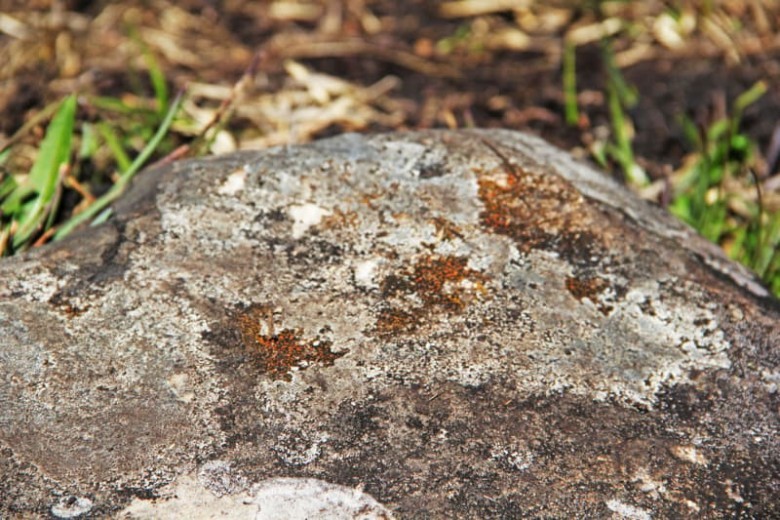
It took James five nights until, in the first light of dawn, he spotted a promising plant. He gingerly unearthed the root and carefully stowed it in a padded box.
Is This the Savior?
The effort had paid off. It was the most exquisite ginseng root he had ever discovered. On the Japanese black market, it would surely fetch over $600,000. If only he had managed to transport it there safely!

Via satellite phone, James informed his father. Pickup at the designated rendezvous point in three hours. The salvation of the family business was now within closer reach.
Camouflage and Deception
James's father had loaded up his old Ford F150 pickup to the brim. It appeared as though they were embarking on an extended camping and fishing trip, an orchestrated chaos of boxes, bags, folders, tackle boxes, and coolers.

The ginseng box could easily be concealed amid the disarray. But father and son remained three hours apart. Subconsciously, James's father clutched his chest – he hadn't felt this piercing sensation since his heart attack.
A Tense Encounter with a Ranger
As they had anticipated, a ranger halted James's father as he entered the entrance to the national park. However, they were acquainted, and the ranger's inquiries revolved around the baseball game from the previous day.

Three hours later, when James reached the agreed-upon spot, he spotted his father's vehicle parked beneath a tree. He had succeeded. Smuggling the ginseng to Japan now felt like a walk in the park.
Is the Family Saved?
Of course, a red ginseng root valued at the price of a single-family house couldn't be sent through the mail. To ensure its safe arrival, a courier and a private plane were essential.

Both posed no challenge for the McAllens. For years, they had employed the daughter of a wealthy actor, who spent each week attending an art fair or gallery opening in a different country.
Time Was Running Out
Just three days before the loan was due, a major art fair was taking place in Japan. It was uncomfortably tight, but it was the sole secure travel route. Until then, the ginseng would be stored in a climate-controlled safe.
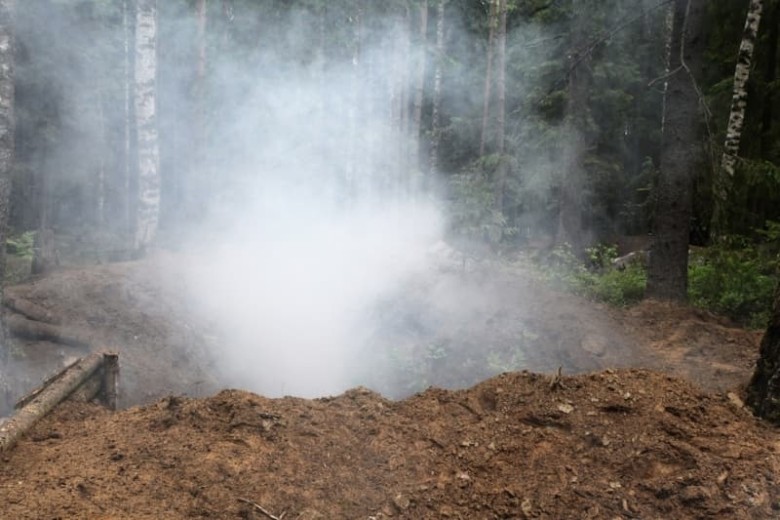
After agonizing days of waiting, the flight to Japan unfolded as planned. The ginseng root was handed over to the black market dealer, who shared James's valuation and already had a buyer lined up.
Silence
But then, nothing happened. The black market dealer simply vanished. No response to emails. Inquiries through acquaintances in Japan yielded nothing. No trace of the dealer, ginseng, or money.
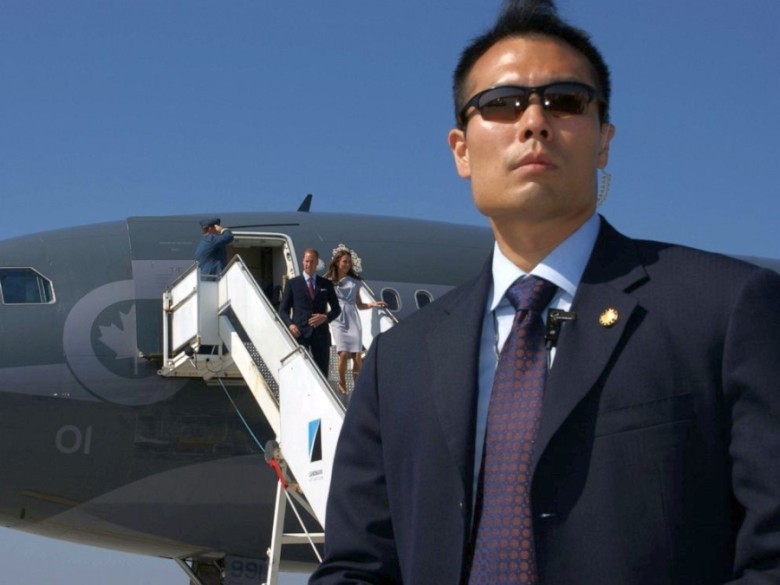
Meanwhile, the deadline for the loan extension inexorably approached. The McAllens convened a family council, but the outcome remained the same. All cash reserves had been depleted in recent years. The real estate market was currently stagnant.
All Things Must Come to an End
It happened, something no McAllen could have fathomed in a hundred years. Following the loan repayment failure, the painstakingly maintained facade of the McAllen construction company crumbled.

A few days later, as the last bank revoked their open lines of credit, a fire sale commenced. Within three weeks, everything painstakingly built over four generations dissipated into thin air.
No Happy Ending
The black market dealer finally got in touch three days later. He had been cut off from communication on the buyer's private island. However, instead of the expected $600,000, he had actually received $730,000.

James stared blankly at his phone. Three years of the pandemic had drained all reserves. Three weeks of constant rain had thwarted an earlier search. And now, a mere three days' delay had plunged his family into ruin.











Comments
0 comment